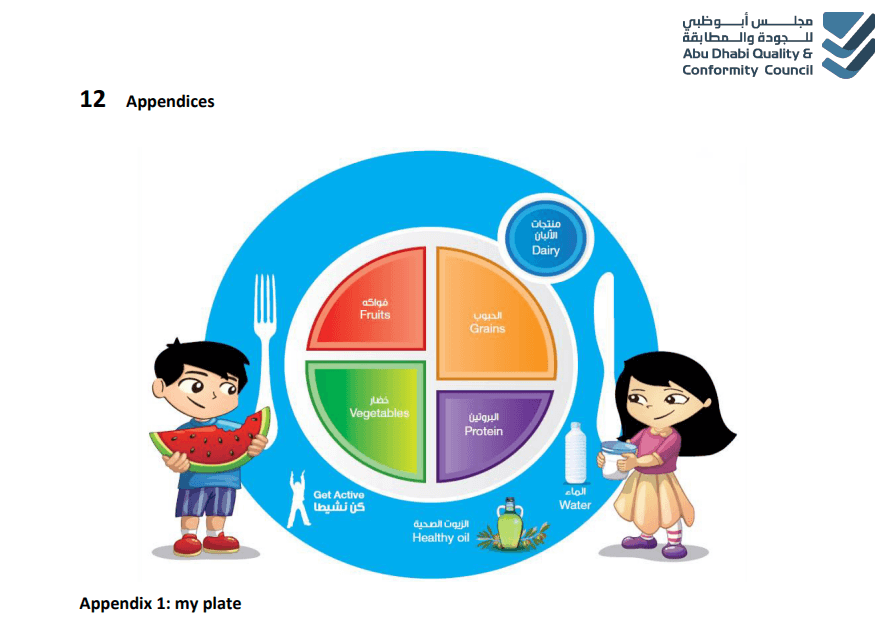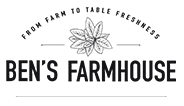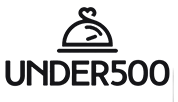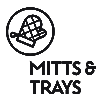Allergen Labeling Regulation Guide: A Complete Guide for Food Businesses in the GCC
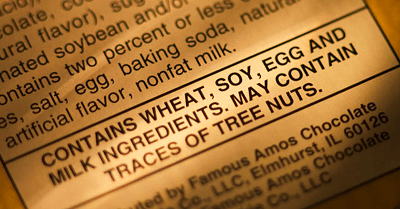
Navigating GCC allergen labeling rules? Our complete guide breaks down mandatory allergens, country-specific laws, and best practices for compliance. Avoid fines and build trust.
Food allergies are a growing public health concern worldwide, and the GCC (Gulf Cooperation Council) is no exception. With a diverse population, high food imports, and a booming hospitality sector, the region faces unique challenges in managing allergens. That’s why allergen labeling and food allergen labeling have become essential elements of allergen compliance GCC regulations.
Countries like Saudi Arabia, the UAE, Kuwait, Qatar, Bahrain, and Oman have established strict labeling requirements, often aligned with international standards such as Codex Alimentarius, the EU, and the US FDA. For food manufacturers, retailers, restaurants, and catering businesses, understanding these rules is no longer optional—it’s critical for compliance, consumer safety, and brand reputation.
This guide explores GCC allergen labeling regulations, common challenges for food businesses, the importance of allergen traceability, and how tools like NutriCal can help streamline compliance.
Why Allergen Labeling Matters in the GCC
Food allergies can trigger reactions ranging from mild skin irritation to life-threatening anaphylaxis. In the GCC, where dining out and imported food consumption are both widespread, the risk of accidental allergen exposure is especially high.
Accurate food allergen labeling benefits businesses and consumers alike:
-Protects consumers with food allergies and intolerances.
-Builds trust by demonstrating transparency and care.
-Ensures allergen compliance GCC-wide, reducing risks of penalties and recalls.
-Facilitates international trade, since GCC allergen rules are aligned with global standards.
Mandatory Allergens in the GCC
The GCC Standardization Organization (GSO) sets unified food labeling standards for member states. The core regulation is GSO 9/2013 – Labelling of Prepackaged Foods, which requires allergens to be declared clearly and prominently on product labels.
Food businesses must declare the following allergens when present in a product:
1.Cereals containing gluten (wheat, barley, rye, oats, spelt).
2.Crustaceans and products thereof.
3.Eggs and egg products.
4.Fish and fish products.
5.Peanuts and products thereof.
6.Soybeans and products thereof.
7.Milk and dairy products (including lactose).
8.Tree nuts (almonds, walnuts, pistachios, etc.).
9.Celery and products thereof.
10.Mustard and products thereof.
11.Sesame seeds and products thereof.
12.Sulphur dioxide and sulphites (>10 mg/kg).
13.Lupin and products thereof.
14.Mollusks and products thereof.
These align closely with EU allergen lists, ensuring that GCC products are trade-compliant.
Compound Ingredients in Allergen Labeling
A critical part of allergen compliance GCC is declaring allergens that are present as part of compound ingredients. For example:
-If mayonnaise is used in a recipe, its components (eggs, mustard) must be disclosed.
-If chocolate is included, milk and soy (lecithin) must be declared.
GCC regulations require businesses to break down compound ingredients into their allergenic components when they represent more than 5% of the finished product. This ensures that consumers can make informed decisions without needing to guess what’s inside processed ingredients.
Country-Specific Allergen Compliance in the GCC
While GSO sets the framework, each GCC country enforces allergen labeling through its own authority.
Saudi Arabia (SFDA)
The Saudi Food and Drug Authority (SFDA) is highly strict on allergen labeling. Prepackaged foods must have allergens clearly listed in Arabic and English. Foodservice businesses are increasingly required to display allergen information on menus.
United Arab Emirates (MoIAT)
The UAE Ministry of Industry and Advanced Technology enforces GSO rules. Food allergen labeling must be bold, legible, and visible. Imported goods without allergen information must be relabeled before distribution. Major restaurant chains in the UAE also provide allergen details on menus or upon request.
Kuwait
Kuwait applies GSO 9/2013 and mandates that allergens appear in Arabic on all packaging. Imported products often require relabeling to meet allergen compliance.
Qatar
The Ministry of Public Health (MOPH) requires allergen declarations aligned with GSO standards. Foodservice establishments must provide allergen information upon request, with growing enforcement in the catering sector.
Bahrain and Oman
Both countries enforce allergen labeling rules at ports of entry, ensuring imported goods comply before entering the market.
Challenges for Food Businesses in the GCC
Despite clear rules, businesses often struggle with:
-Complex supply chains – tracing allergens across global suppliers is difficult.
-Menu management – frequent recipe updates increase allergen risks in restaurants.
-Labeling errors – even small mistakes can cause recalls and fines.
-Consumer demand – GCC consumers expect detailed, transparent allergen information.
Allergen Traceability: A Core Requirement
Effective allergen compliance GCC is not just about labeling—it’s about traceability across the entire supply chain. This includes:
-Ingredient sourcing and supplier verification.
-Production and storage processes to prevent cross-contamination.
-Accurate allergen declarations on packaging and menus.
-Quick identification in case of recalls.
Without robust allergen traceability, businesses risk non-compliance and consumer health.
NutriCal: Supporting Allergen Traceability and Compliance
Digital solutions are transforming how businesses manage allergens. NutriCal, a nutrition analysis and compliance software, helps food businesses in the GCC ensure accurate allergen labeling and streamline compliance.
With NutriCal, businesses can:
-Detects allergens automatically in recipes and formulations.
-Break down compound ingredients, ensuring full allergen transparency.
-Generate bilingual labels (Arabic and English) compliant with GCC rules.
-Trace allergens across suppliers, ingredients, and recipes.
-Update recipes quickly, while keeping allergen data accurate.
By centralizing allergen management, NutriCal reduces the risk of labeling errors, enhances compliance, and strengthens consumer trust.
Best Practices for Food Allergen Labeling in the GCC
To ensure smooth allergen compliance GCC, food businesses should:
1.Stay updated with GSO and national guidelines.
2.Train staff at all levels in allergen management.
3.Leverage digital tools like NutriCal for allergen traceability.
4.Standardize labeling by highlighting allergens in bold or capital letters.
5.Verify suppliers to ensure ingredient allergen information is accurate.
6.Communicate clearly with consumers via packaging, menus, and digital platforms.
The Future of Allergen Labeling in the GCC
The GCC food sector is rapidly modernizing, and food allergen labeling will continue to gain importance. Future developments may include:
-Stricter enforcement for restaurants and catering businesses.
-Mandatory allergen information on food delivery apps.
-Closer alignment with EU and FDA allergen rules for international trade.
-Increased reliance on digital tools like NutriCal to manage compliance efficiently.
Final Thoughts
The GCC is moving toward a safer, more transparent food system, with allergen labeling at the heart of compliance. For businesses, meeting food allergen labeling requirements isn’t just about avoiding fines—it’s about protecting consumers and earning their trust.
By prioritizing allergen traceability, managing compound ingredients effectively, and adopting digital tools like NutriCal, food businesses can achieve seamless allergen compliance GCC while staying competitive in a health-conscious market.
In today’s food industry, accurate allergen labeling is more than a regulation—it’s a commitment to safety, quality, and consumer confidence.
Simplify your GCC allergen compliance. Schedule a free demo with our experts to see how NutriCal can automate your labeling and traceability.
Disclaimer:
This article is for informational purposes only and does not constitute legal or regulatory advice. Food businesses should always consult the official GCC Standardization Organization (GSO) guidelines and relevant national authorities to ensure full compliance with allergen labeling regulations.
Government Partnership
Coming Soon
Frequently Asked Questions
NutriCal provides comprehensive nutritional analysis beyond calorie counts, encompassing allergens, meal types, and customized food labels. You can also effectively manage recipes, tailor menus, and generate insightful reports.
NutriCal is an online platform accessible from anywhere with an internet connection. Our services have a global reach, with a strong focus in the GCC region.
NutriCal collaborates with a diverse range of establishments, including food brands, suppliers, retail chains, and restaurants in the GCC.
Absolutely! NutriCal offers a complimentary trial period. Reach out to us to initiate your trial experience on our platform.
For detailed pricing information, please get in touch with our dedicated sales team. Our pricing plans are flexible and tailored to suit your specific business requirements.
We provide both monthly and annual subscription plans, granting you the choice to select the payment option that aligns best with your preferences.
NutriCal allows seamless integration of missing ingredients through credible data sources, ensuring a complete and personalized database.
NutriCal's data originates from reputable sources such as USDA and undergoes rigorous theoretical analysis, ensuring utmost precision in nutritional calculations.

